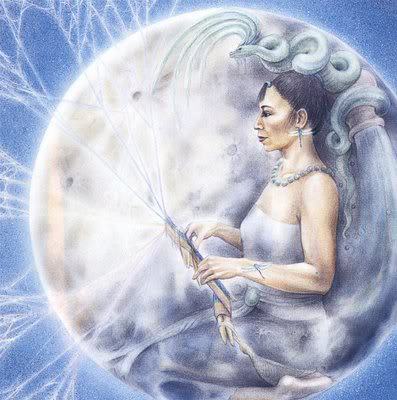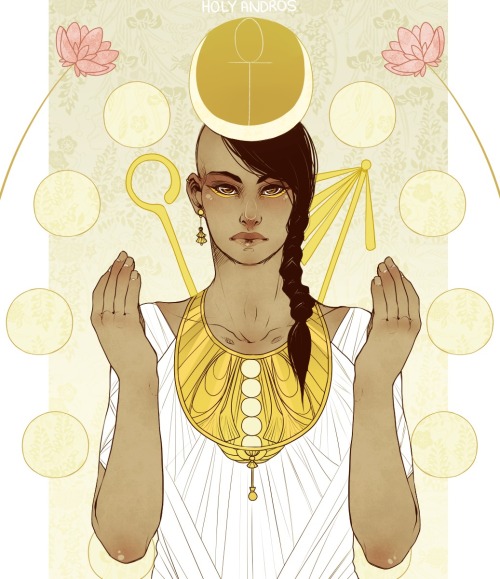Spells, Gods, information about a world not seen with the eyes but with the heart, and power to do good in the world. All is free to enter into this realm, but to disrespect the craft is not one that I am willing to tolerate. I hope together we learn much on this journey.
Wednesday, December 11, 2013
Gods and Goddesses of the Moon
We've talked about the cycle of the moon before, but we never really talked about the moon itself. Science states that an asteroid hit the Earth and sent a chunk of it spiraling out into space. Even though I passed my Physical Science class with an A+, it's still something that I don't feel is the truth. Truth is we might never know how the moon formed or how certain things happened, but there is one thing that I am very sure about; the Moon is a God/Goddess.
Answer me this; have you ever just been really upset, either with anger or with pain, that you looked up to the moon and it actually made you feel calm and at peace? I imagine that all of you have had your own moment of just looking up at the moon in your own moments. If so, NO this does not make you a werewolf. This just makes you a human being. It's a gift that we are attracted to beauty, a natural part of life.
I wholeheartedly believe that the Moon is a God of sorts. Imagine our ancestors thousands of years ago, imagine how they looked up into the sky and out of the darkness there was this great huge, white orb floating in the sky. Imagine how they felt when they watched as, in a month, it disappeared only to reappear again. Imagine how they believed this rock in the sky to be significant and important.
Now, when you're done reading this, I hope that you have found the right Moon God/Goddess. It's important to believe in/worship a God of the Moon and of the Sun to represent balance in the world. Light and darkness, good and bad, yin and yang. For many, the Moon is a Mother, a Goddess that protects all within her light. Keep that in mind.
Westerners are familiar with (female) moon goddesses. Our word lunar, as in the lunar cycle of full, crescent, and new moons, comes from the feminine Latin Luna. This seems natural because of the association of the lunar month and the female menstrual cycle, but not all societies envision the moon as a woman. In the Bronze Age, the East, from Anatolia to Sumer and Egypt, had (male) moon gods [Source: "The Myth of Europa and Minos," by P. B. S. Andrews. Greece & Rome, Vol. 16, No. 1 (Apr., 1969), pp. 60-66]. Here are some of the moon gods and moon goddesses of major ancient religions.
Arma
Nationality: Hittite
Moon God
Arma is the name of a Hittite lunar personification whom some think is connected with the Greek god Hermes.
Reference: "Hittite Ritual at Sardis," by Noel Robertson. Classical Antiquity, Vol. 1, No. 1 (Apr., 1982), pp. 122-140.
Artemis
Nationality: Greek
Moon Goddess
In Greek mythology, the sun god was originally Helios (whence words like heliocentric for our sun-centered solar system) and the moon goddess Selene, but over time, this changed. Artemis came to be associated with Selene, just like Apollo with Helios. Apollo became a sun god and Artemis became the goddess of the moon.
Bendis
Nationality: Thracian
Moon Goddess
Bendis was a goddess of the moon and hunt, associated by the Greeks with Artemis.
Source: "Balkan mythology" The Oxford Companion to World mythology. David Leeming. Oxford University Press, 2004.
Coyolxauhqui
Nationality: Aztec
Moon Goddess
Coyolxauhqui means "Golden Bells." Coyolxauhqui is the sister of the Sun god, Huitzilopochtli.
Diana
Nationality: Roman
Moon Goddess
Heng-O
Nationality: Chinese
Moon Goddess
Heng-O was the mother of the 12 moons and 10 suns.
Ix Chel
Maya goddess Ixchel
Public Domain. Courtesy of Wikipedia
Nationality: Maya
Moon Goddess
Lady Rainbow was a Maya old woman moon goddess.
Khons/Khonsu
Nationality: Egyptian
Moon God
Amen's consort was Mut. Together they had a son, Khons or Khonsu the moon god. His name means "the wanderer." He may have been believed to be capable of flying.
Other Egyptian moon gods:
Thoth
Osiris
Min
Duau
Shu and Khnum are also associated with the moon.
Source: Hathor and Thoth, by Claas Jouco Bleeker.
Mawu
Nationality: African, Dahomey
Moon Goddess
Also spelled Maou. Female.
Mên
Nationality: Phrygian, Western Asia Minor
Moon God
Male
Mên is a Phrygian lunar god also connected with fertility, healing, and punishment. Characteristically, Men is depicted with the points of crescent moons on his shoulders. He wears a Phrygian cap. Mên carries a pine cone or patera in his outstretched right hand and rests his left upon a sword or lance.
Selene or Luna
The Moon-goddess Selene
Marie-Lan Nguyen/Wikimedia Commons.
Nationality: Greek
Luna in Latin.
Moon Goddess
Actually, Selene/Luna is a moon Titan (since she's female, that could be Titaness), and the daughter of the Titans Hyperion and Thea. Selene/Luna is the sister of the sun god Helios/Sol.
Sin/Nanna
Tsuki-Yomi
Nationality: Japanese
Moon God
A Shinto moon god.
Yarikh
Nationality: Ugarit
Moon God
Yarikh or Yarih was the lover of Nikkal -- a Sumerian sun goddess.
Thanks to N.S. Gill from http://ancienthistory.about.com/od/polytheisticreligions/tp/MoonGods.htm
Subscribe to:
Post Comments (Atom)
















''but over time, this changed. Artemis came to be associated with Selene...''
ReplyDeleteGreek Artemis / Roman Diana - goddess of forests ,wild animals (from ancient cult Diana of Ephesus) ,patroness of hunters came to be associated with Moon as Diana Lucifera (from Diana of Ephesus). always.